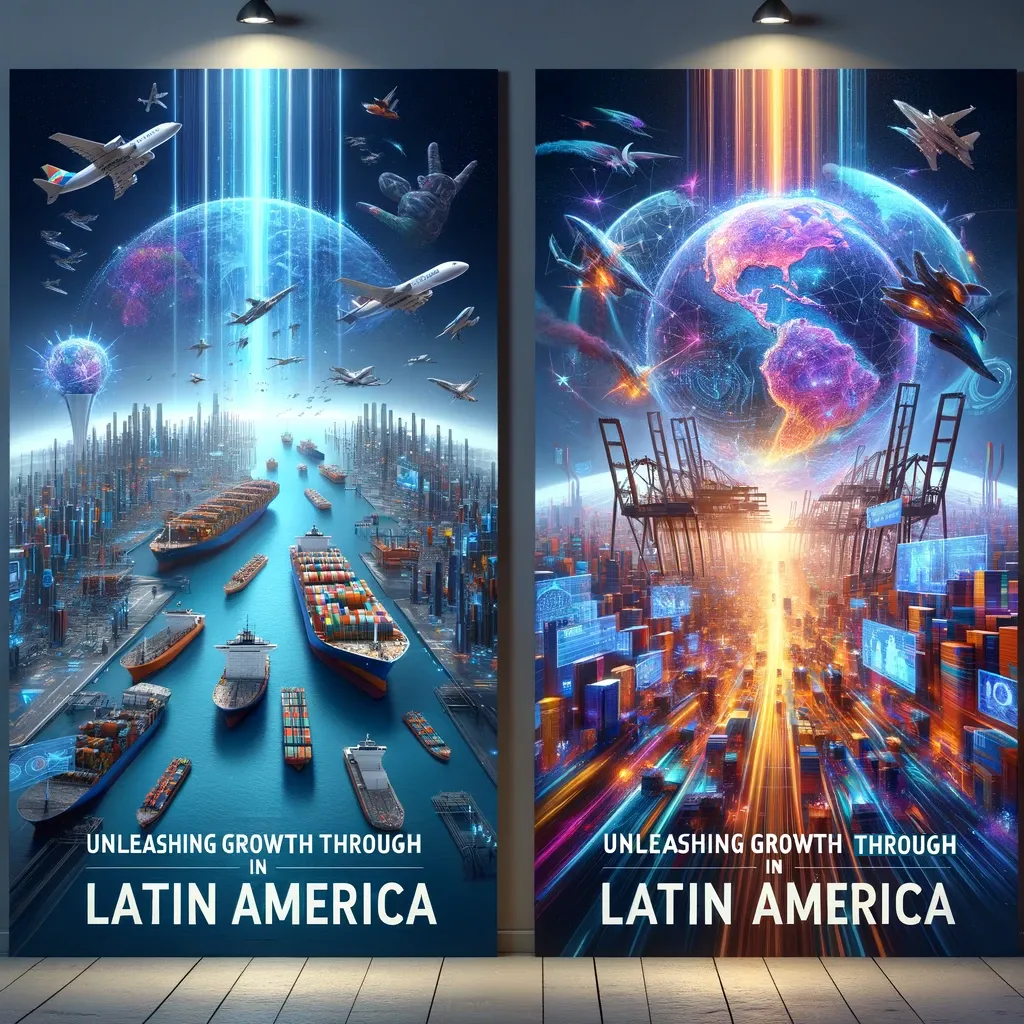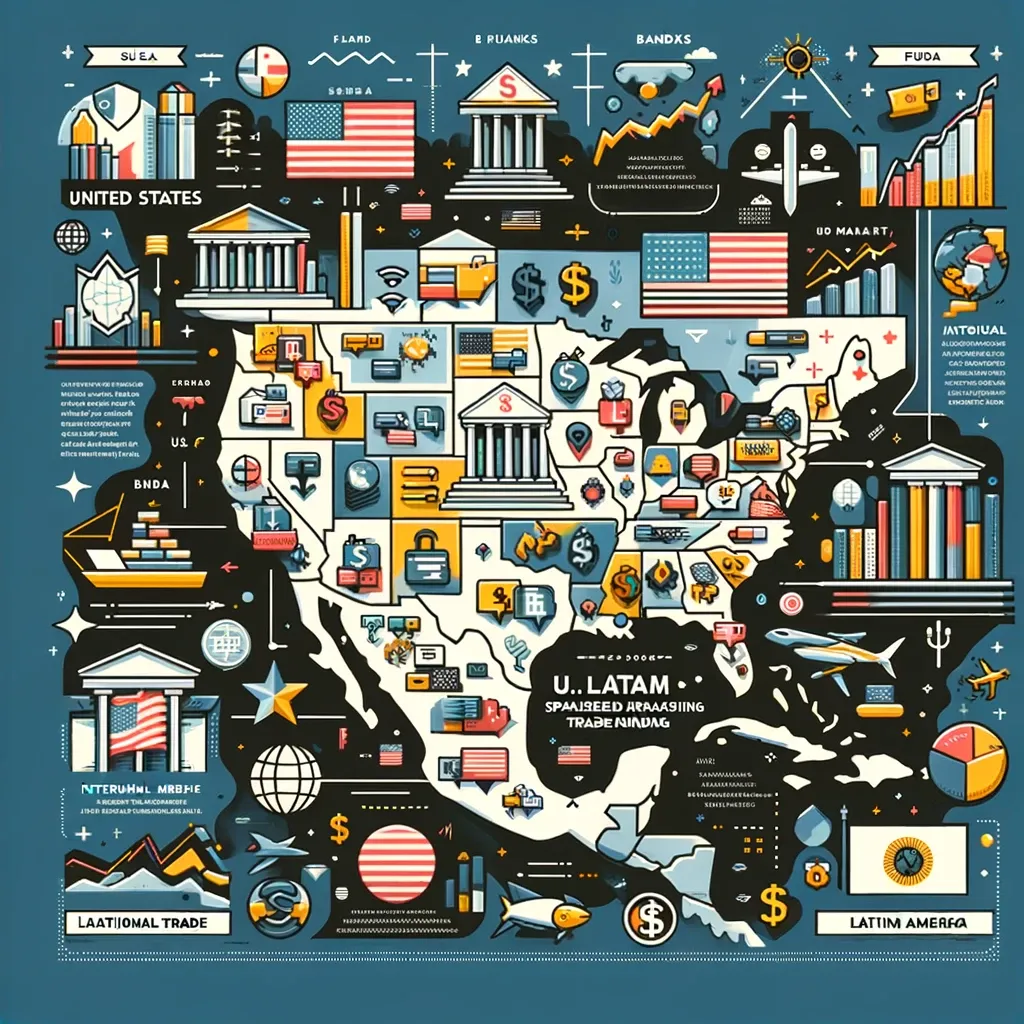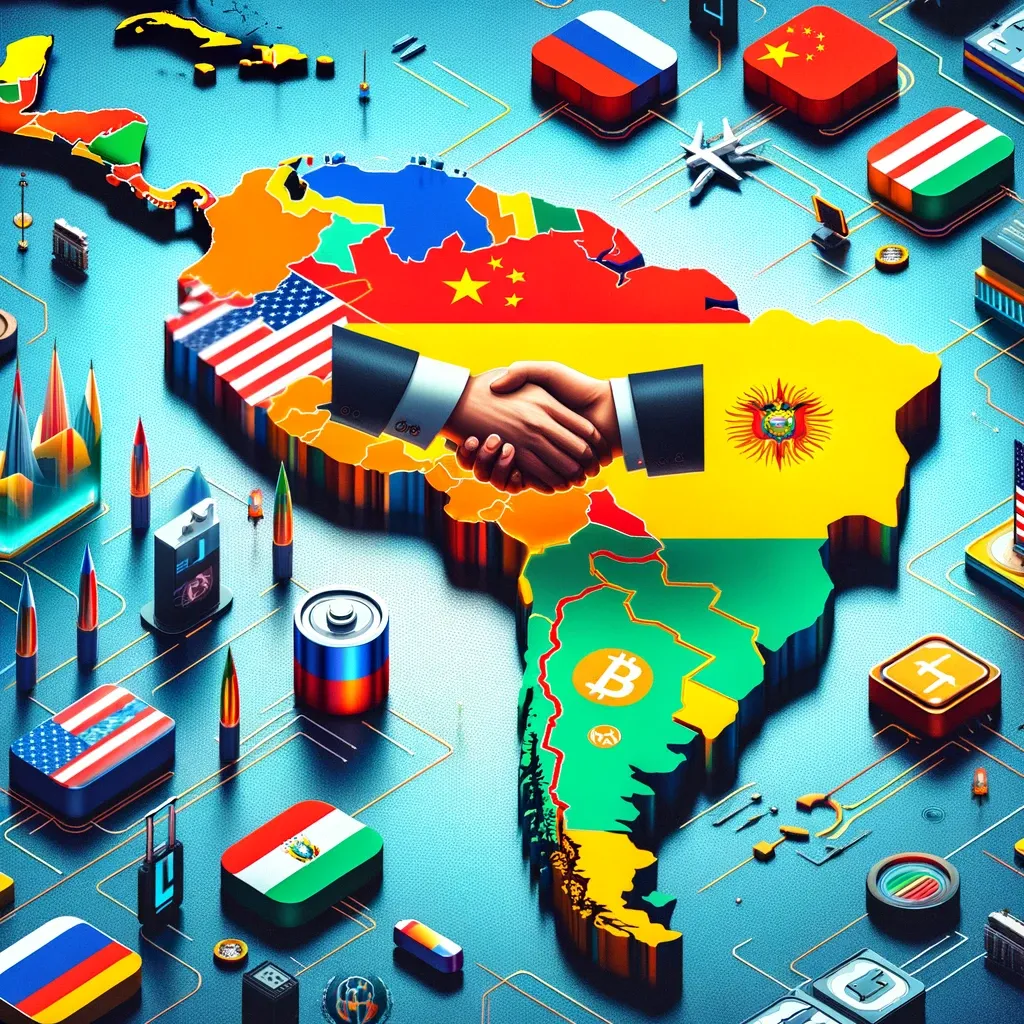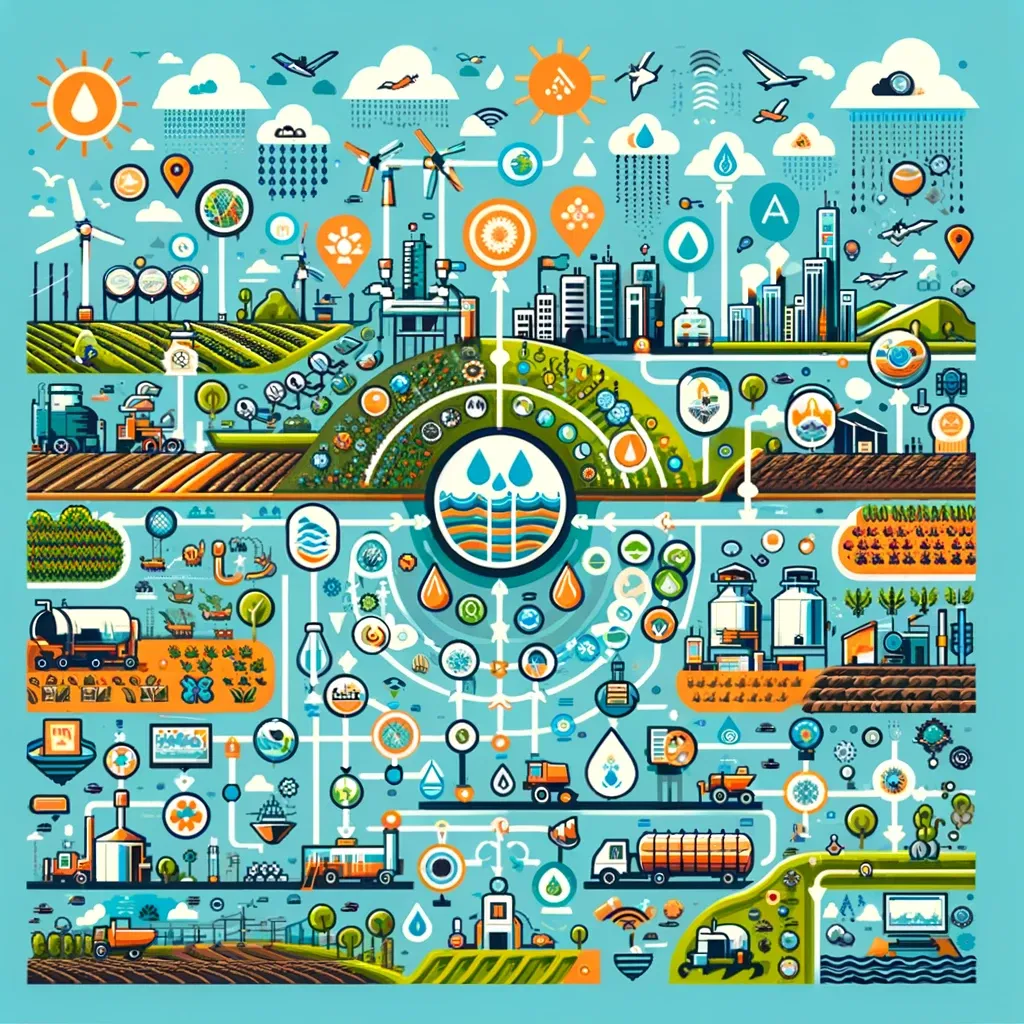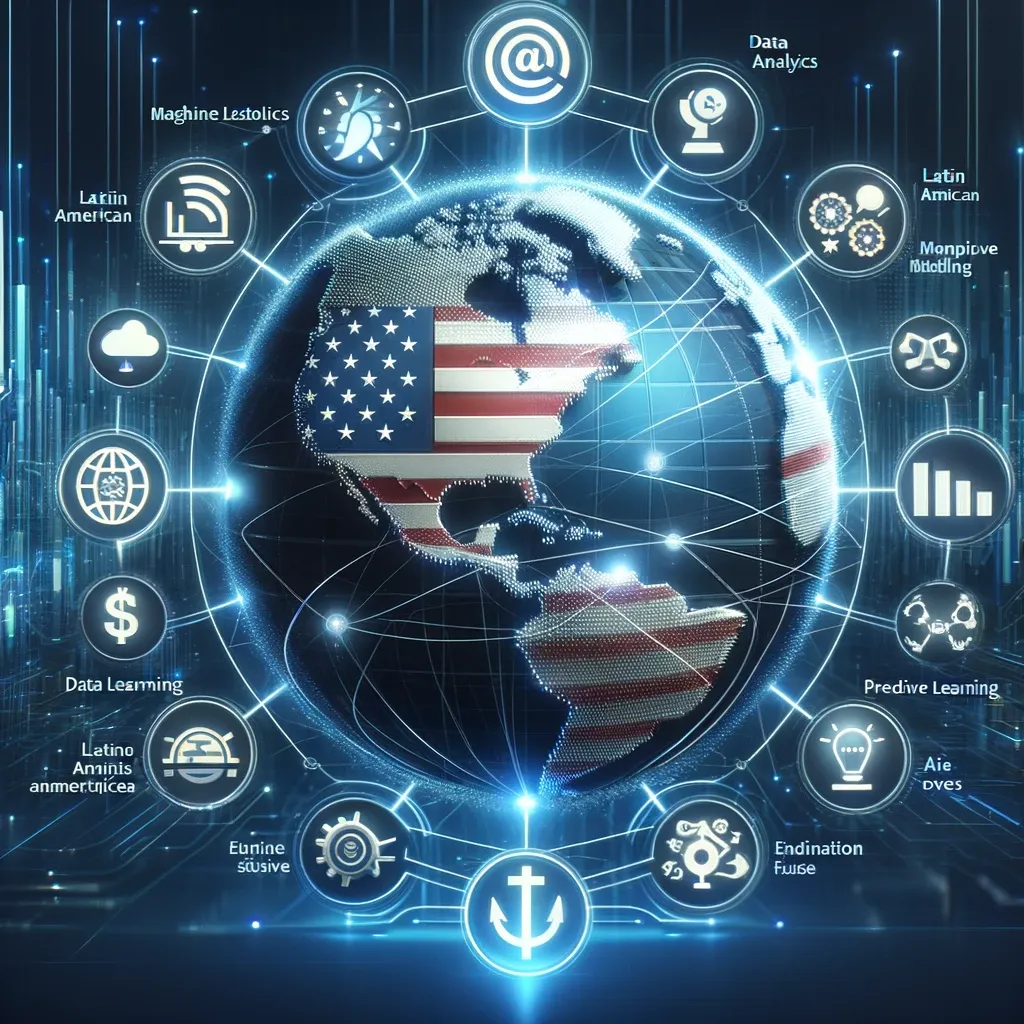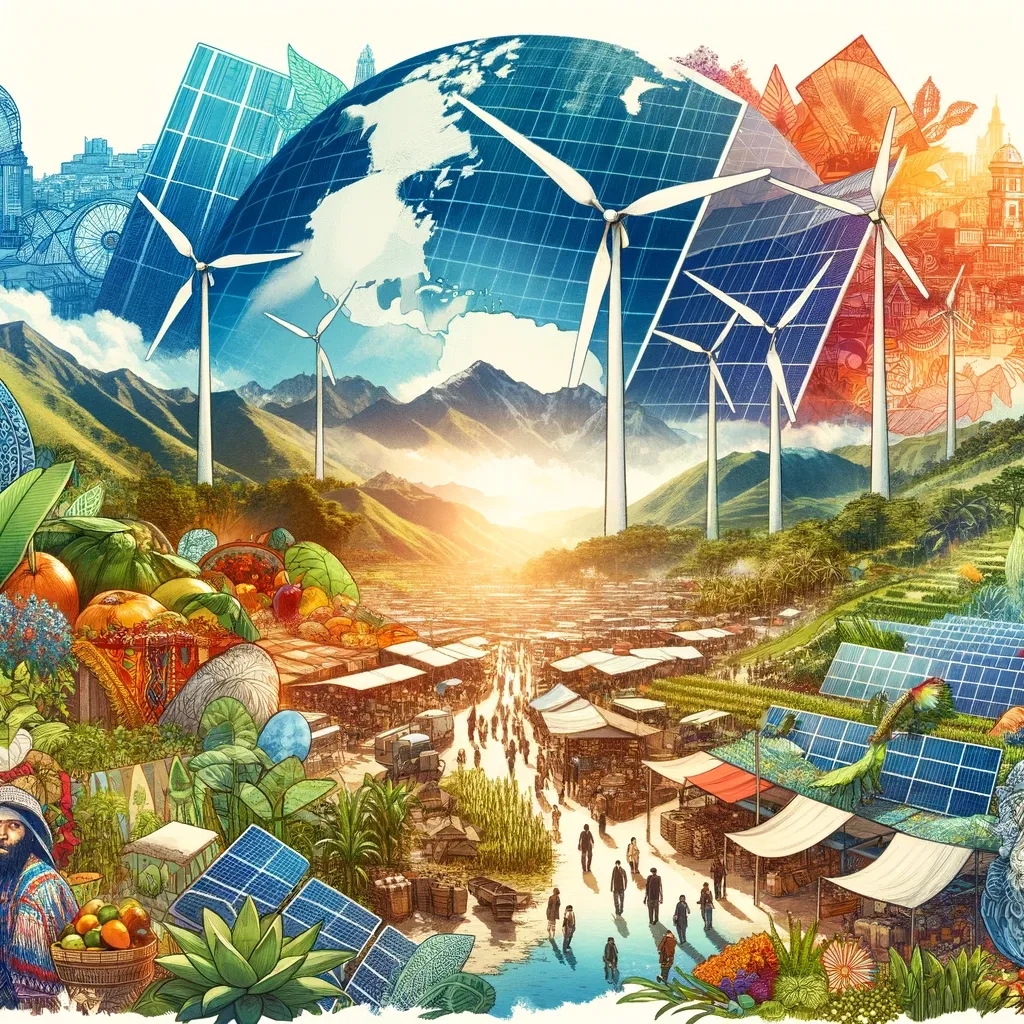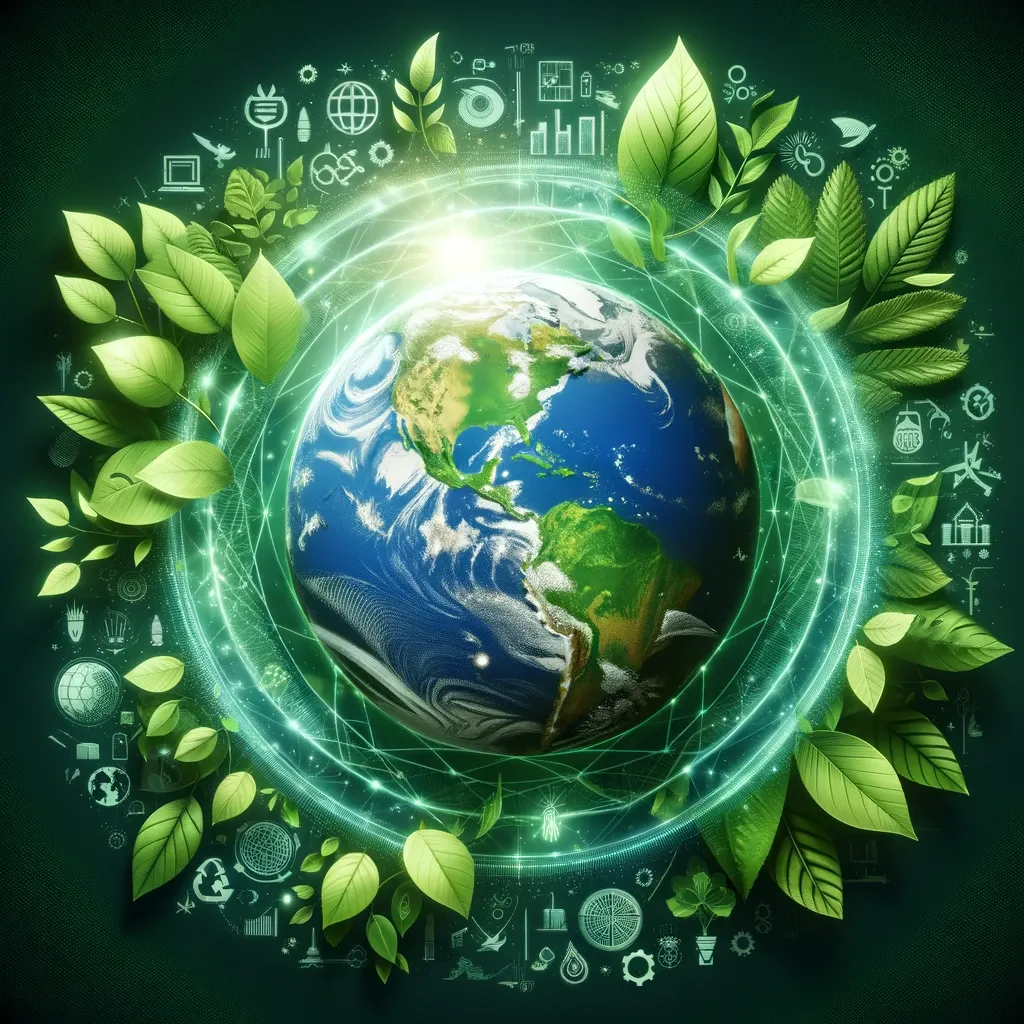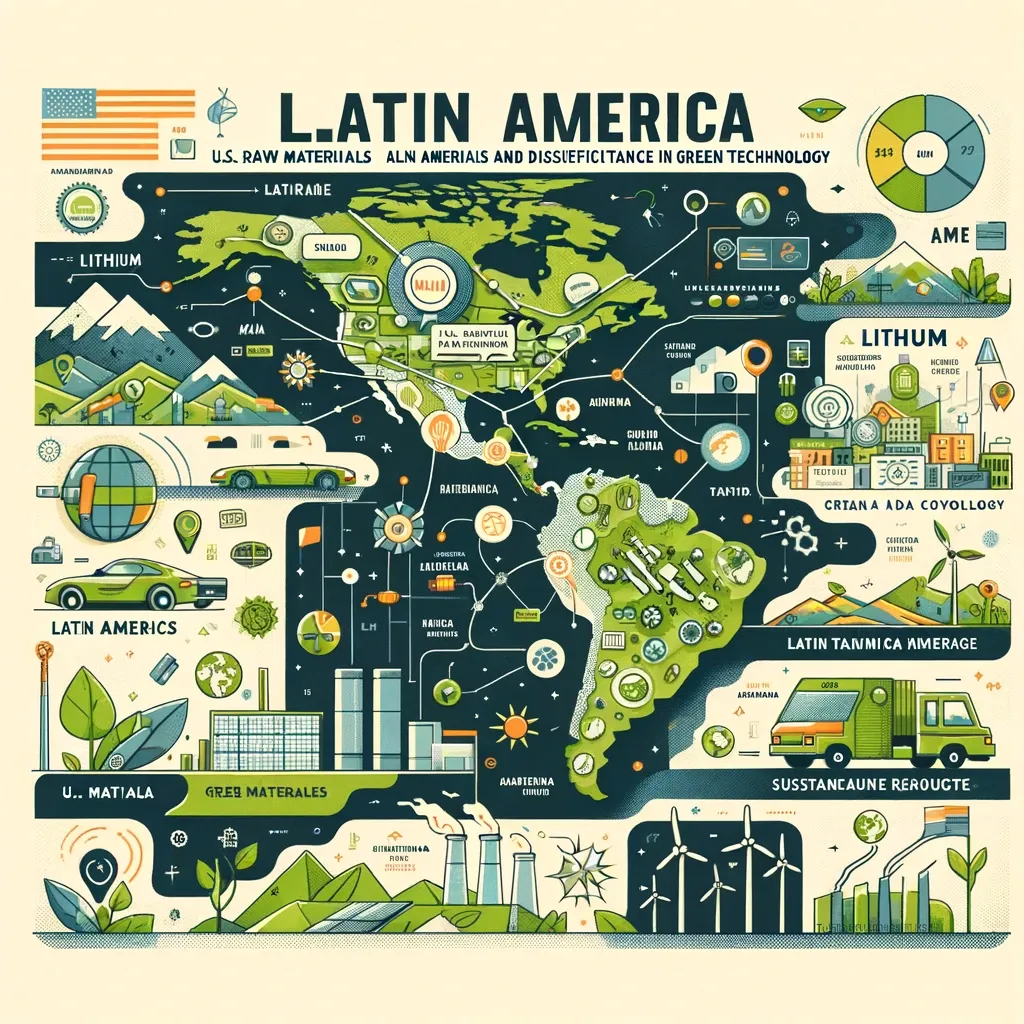Bolivia's Lithium Revolution: A Keystone in U.S.-LATAM Renewable Energy Trade
Fueling Economic Growth and the Green Revolution in Latin America
Discover how Bolivia's burgeoning lithium market is poised to redefine U.S.-LATAM trade relations, fostering unprecedented opportunities in the renewable energy sector. Explore the pivotal role of Bolivia's lithium reserves in enhancing sustainability and collaboration across the Americas.

A close-up view of a lithium-ion battery with a visible internal structure, showcasing advanced technology. This semi-realistic image represents the end-use of Bolivia's lithium in renewable energy solutions, highlighting its critical role in sustainable energy.
Introduction
Bolivia stands on the precipice of a lithium revolution, holding the key to one of the world's largest untapped reserves of this crucial element. As the global demand for renewable energy sources surges, Bolivia's lithium becomes not just a national asset but a central pillar in the evolving landscape of U.S.-LATAM trade relations. This post delves into how Bolivia's lithium market potential can catalyze broader collaborations in renewable energy within the Americas, weaving a stronger fabric of sustainability and economic synergy across the region.
Bolivia's Lithium Treasure: A Regional Game-Changer
The Lithium Potential
Bolivia's Salar de Uyuni, renowned for its breathtaking landscapes, harbors one of the largest lithium deposits on the planet. It is home to an estimated 21 million tons of lithium, making it a titan in the global lithium market. This vast resource is critical for battery production, electric vehicles (EVs), and renewable energy storage solutions, marking Bolivia as a key player in the green energy transition.
U.S.-LATAM Trade Relations: A New Era of Collaboration
The burgeoning demand for lithium positions Bolivia as a strategic partner in U.S.-LATAM trade relations, especially in the context of renewable energy and sustainability. The U.S., in its pursuit of diversifying energy sources and reducing carbon footprints, finds a valuable ally in Bolivia. Strengthening trade and investment ties in Bolivia's lithium extraction and processing can serve as a model for U.S.-LATAM cooperation, enhancing energy security and sustainability across the hemisphere.
Examples of Collaboration:
- Joint Ventures and Investments: Encouraging U.S. investments in Bolivia's lithium sector can lead to the development of more sustainable extraction technologies, reducing environmental impact while boosting economic benefits.
- Technology Exchange Programs: Facilitating technology transfers and expertise between U.S. and Bolivian firms can enhance lithium processing efficiency and environmental safeguards, fostering innovation in renewable energy storage solutions.
- Policy Dialogue and Regulatory Frameworks: Collaborative efforts in shaping conducive regulatory environments can expedite the growth of the lithium market, aligning it with global sustainability goals and trade standards.
Linking to Broader Renewable Energy Collaborations
Bolivia's lithium revolution is not an isolated phenomenon but a critical component of broader U.S.-LATAM collaborations in renewable energy. Integrating Bolivia's lithium resources with regional renewable energy projects can amplify the impact of sustainability initiatives, offering a blueprint for future energy cooperation in the Americas.
Impact on Economic Development
1. Economic Growth Strategies in Latin America
Bolivia's lithium reserves are more than a natural resource; they are a catalyst for comprehensive economic growth strategies in Latin America. The development of a robust lithium mining and processing industry promises to create jobs, foster new skills, and spur technological advancements in renewable energy.
2. Latin America Regional Development Programs
The lithium industry in Bolivia can serve as a model for regional development programs across Latin America. Collaborative initiatives can lead to shared technological advancements, cross-border investments, and a unified approach to sustainable mining practices.
3. Boosting LATAM Economies Through Development
The ripple effect of Bolivia's lithium industry on neighboring economies cannot be overstated. By boosting trade, fostering industrial growth, and creating a hub for green technology, Bolivia can significantly contribute to the overall economic resilience of Latin America.
Case Studies and Success Stories: Bolivia's Green Tech Revolution
1. The Dawn of an Industrial-Scale Lithium Plant
Bolivia recently inaugurated its first industrial-scale lithium plant, a significant stride toward harnessing its vast lithium resources. This $100-million lithium carbonate facility, situated in the Salar de Uyuni, is designed to produce 15,000 metric tons per year. It's a cornerstone in Bolivia's strategy to become a major player in the global shift towards electric vehicles and renewable energy sources.
2. Challenges and Opportunities in Lithium Extraction
Despite having the world's largest lithium reserves, Bolivia faces challenges in making its lithium production economically viable. High levels of magnesium in the Uyuni brine make extraction costly and complex. Additionally, logistical hurdles such as the lack of proximity to ports and a state-led approach to natural resource management have deterred private investment. However, new direct extraction techniques are emerging as a potential game-changer, offering hope for more efficient and viable lithium production.
3. International Collaborations and Investments
In a significant move, Bolivia's state-owned YLB has joined forces with the Russian Uranium One Group and a Chinese consortium led by Contemporary Amperex Technology Co. (CATL) to develop advanced lithium extraction facilities. These partnerships, involving investments worth billions, aim to overcome the technical and purity challenges of Bolivian lithium, marking a new era in the country's lithium industry.
4. Environmental Considerations and Sustainable Practices
Lithium mining, especially in the arid regions of South America, raises environmental concerns. Traditional brine extraction methods used in the Lithium Triangle, including Bolivia, can lead to excessive water and land use, impacting local communities and ecosystems. However, Bolivia is exploring direct lithium extraction methods, which could significantly reduce water usage and environmental impact, aligning with global sustainability goals.
5. The Future of Lithium in Bolivia
Despite its abundant resources, Bolivia has yet to achieve large-scale lithium production. Recent partnerships, like the one with CATL and other Chinese firms, aim to construct facilities capable of significant lithium carbonate production for electric vehicle batteries. These ambitious projects, though faced with challenges like local opposition and unproven technologies, signify Bolivia's potential to transform its lithium resources into a significant economic asset.

An aerial view of Bolivia's Salar de Uyuni, depicting the vast salt flats with ongoing lithium mining operations. This image captures the immense scale and potential of Bolivia's lithium reserves, emphasizing their importance in the global green revolution.
Bolivia's Lithium Journey: Paving the Way for Economic Growth
Bolivia's journey in leveraging its vast lithium reserves offers a compelling narrative of challenges, opportunities, and innovation in the realm of economic development. The country's efforts to tap into its lithium resources, while navigating environmental concerns and technological complexities, provide an intriguing case study in natural resource management and economic strategy.
The Rise of Industrial-Scale Lithium Production
The inauguration of Bolivia's first industrial-scale lithium plant marks a significant milestone. This facility, representing a major investment, is a bold step towards transforming the nation's lithium reserves into a dynamic driver of economic growth.
Overcoming Challenges for Global Competitiveness
Bolivia's path hasn't been straightforward, with obstacles such as the high magnesium content in its lithium brine and logistical hurdles. However, the nation's persistence and willingness to adopt new direct extraction techniques illustrate its commitment to overcoming these challenges and becoming a competitive player in the global lithium market.
Strategic Partnerships and International Collaboration
Bolivia's collaboration with international partners like the Russian Uranium One Group and Chinese consortiums highlights the global interest in its lithium potential. These partnerships are crucial in bringing in the necessary technology and investment, setting the stage for Bolivia to emerge as a key lithium exporter.
Sustainable Mining and Environmental Responsibility
As Bolivia ventures further into lithium mining, it's increasingly focusing on sustainable practices. This approach not only addresses environmental concerns but also positions Bolivia as a leader in responsible lithium extraction, crucial in today's environmentally-conscious global market.
Future Prospects and Economic Impact
Bolivia's lithium reserves, the largest in the world, hold immense promise for the country's economy. As it moves towards large-scale production, the potential for job creation, skill development, and technological advancement positions Bolivia to play a significant role in the global shift towards renewable energy and electric vehicles.
Conclusion: Bolivia - Leading the Charge in the Green Revolution
As the world embraces the green revolution, Bolivia's role becomes increasingly significant. With responsible development and strategic partnerships, Bolivia is not just participating in the green revolution; it is leading it, setting a precedent for economic development strategies and sustainability in Latin America.
As we stand at the cusp of a new era in renewable energy, Bolivia's lithium reserves emerge as a cornerstone of U.S.-LATAM trade relations and sustainability efforts. By fostering collaboration and innovation, Bolivia's lithium market can not only transform the regional energy landscape but also contribute to a more sustainable and interconnected world.
=====
Did you know?
Did you know that U.S. Small and Medium Enterprises (SMEs) can significantly benefit from Bolivia's burgeoning lithium market by utilizing AI Marketing? As Bolivia positions itself as a key player in the lithium industry, a vital component for sustainable technologies, there are unique opportunities for U.S. businesses to engage in this market.
One innovative approach is leveraging AI-driven market analysis tools to identify and target specific niches within Bolivia's lithium revolution. These tools can analyze local market trends, consumer behaviors, and even regulatory landscapes, offering U.S. SMEs invaluable insights into how to position their products or services effectively.
Moreover, AI Marketing can help in adapting promotional materials to suit the Latin American market. With Bolivia's unique cultural and economic landscape, AI can assist in creating marketing content that not only translates language but also aligns with local cultural nuances and business practices. This ensures higher engagement rates and better receptivity among potential Bolivian partners and customers.
Furthermore, AI Marketing technologies can optimize digital advertising campaigns across Latin America, specifically targeting sectors related to the lithium industry. By identifying and focusing on online platforms where potential business partners and customers for lithium-related services are active, U.S. SMEs can efficiently allocate their marketing budgets for maximum impact.
Additionally, AI tools can facilitate partnership building by identifying potential Bolivian companies and startups involved in the lithium market. This networking is crucial for U.S. SMEs looking to enter or expand their footprint in Bolivia’s lithium sector, providing them with local insights and opportunities for joint ventures or collaborations.
Incorporating AI Marketing into their strategy not only allows U.S. SMEs to penetrate the Latin American market effectively but also aligns them with the innovative and forward-thinking ethos of the lithium revolution in Bolivia. This strategic approach ensures that U.S. businesses are not just participants but active contributors to the sustainable economic growth in Latin America.



